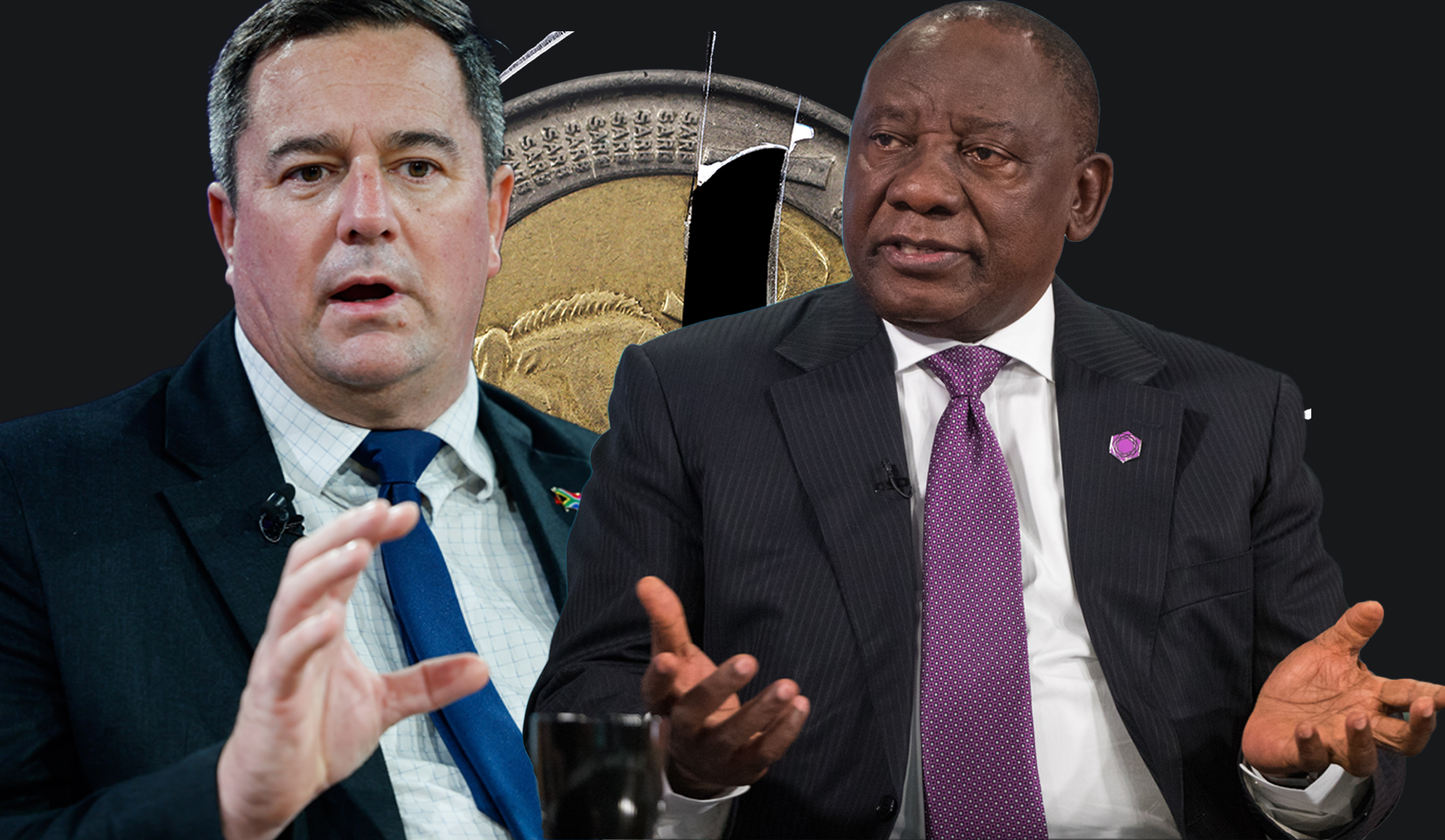Recent media reports suggest the government of national unity (GNU) could collapse because of disagreements over the national Budget and the ANC’s reluctance to share economic policymaking with the DA.
This disagreement mirrors earlier tensions over foreign policy, notably on South Africa’s position on Israel and the conflict in Gaza, as well as the DA’s proposal for an interministerial committee to address foreign policy matters, including the country’s forthcoming G20 presidency.
These developments raise questions about the foundational agreements of coalition governance for this administration, established after last year’s elections.
Ministerial portfolio allocations emerged, not as a matter of formality but as a result of rigorous negotiations determining which party leads in specific domains. Portfolios like finance and foreign affairs are particularly strategic in any such negotiations and are seldom assigned without careful consideration, given that the party that secures the portfolio can typically be expected to set the policy direction.
It is during these negotiations that parties must establish the mechanisms of governance in key areas alongside their shared priorities and mechanisms for consultation on issues where they disagree. To ensure unity, parties may agree to avoid contentious or divisive initiatives, but this does not mean that every party gets a say in every decision.
Before the GNU’s formation, the ANC was explicit about retaining control of ideologically sensitive portfolios, including finance and foreign affairs. One must presume that, with the government having been formed, each party accepted the outcome of the negotiations.
The emergence of coalition governance at national level was widely welcomed by the international community, with many observers viewing it as a pragmatic and stabilising response to the outcome of South Africa’s 2024 elections. Global reactions ranged from cautious optimism to enthusiastic support, particularly from diplomats and investors who had grown wary of the ANC’s trajectory in recent years.
The inclusion of the DA and other parties was seen as a sign that South Africa might be entering a new era of inclusive governance and institutional renewal, bringing the initial vision of hope for the country after the end of apartheid back into view.
Against the backdrop of democratic backsliding in several parts of the world, the GNU was hailed as a reaffirmation of South Africa’s democratic resilience.
This goodwill matters. South Africa’s economy is heavily influenced by investor sentiment, while global perceptions of political stability directly impact currency volatility, investor inflows and the broader economic outlook.
The formation of the GNU helped calm markets and brought some predictability after a period of uncertainty in the lead-up to the election. It also conveyed the message that South Africa remains capable of consensus building, and that its political system, while under strain, retains its capacity for self-correction.
This is exceptionally important given that the country’s core mission at present is (or should be) to end joblessness and improve the quality of life for all her people. It needs economic growth to achieve this.
The country’s presidency of the G20 will further raise its global profile. Expectations are high that South Africa will use this platform to champion issues of African interest, multilateral reform and inclusive growth.
For this reason, foreign ministries, international organisations and global investors are closely watching the internal dynamics of the GNU. They are not only assessing South Africa’s ability to govern but also its coherence in projecting foreign policy positions, articulating economic strategy, and delivering on key reforms.
Should the GNU fracture over internal disputes, it would not simply be a domestic political crisis – it could undermine the fragile restoration of international confidence and South Africa’s ability to negotiate with international partners. The country can ill afford renewed uncertainty, particularly as it seeks to attract investment, grow trade and address urgent structural challenges.
Foreign partners are not naïve to the realities of coalition politics, but they do expect a degree of predictability and clarity in decision-making. In this respect, the current contestation over key portfolios and policy direction risks undermining the very stability the GNU was meant to represent.
At home, these tensions may be interpreted as political jockeying aimed at appealing to individual party constituencies. Abroad, they risk being read as a signal that South Africa’s leaders are unable to govern together.
The distinction is important. The former is familiar in any democracy whereas the latter can erode trust in South Africa’s capacity to deliver – not just in Pretoria, but in Addis Ababa, Brussels, Washington, Beijing and elsewhere.
The current public disagreements, though perhaps well intentioned, do not serve South Africa’s long-term interests. If analysts are correct in predicting that coalition governance will be a feature of South Africa’s political landscape for years to come, parties must prioritise effective co-governance and consider more collaborative approaches in future administrations.
The experiences at the local government level, where commitments are often reneged upon, do not inspire confidence and the stakes are considerably higher at the national level. For this reason, efforts to influence policy should be conducted through established internal channels rather than public disputes.
Moreover, despite the Budget now having been passed, we should realise that the concerns around it are in reality far smaller and more short-term than the economic and foreign policy implications of a government collapse.
Underneath the rhetoric, for many of us the substance is the same – we want a South Africa in which we can all live lives of dignity and prosperity. What remains is for the parties of the GNU to recognise this and deliver on their agreed programme rather than remaining blind to our national interest. Sit around the table and prepare to compromise, be willing to discuss how power-sharing can be adjusted within the existing framework and indeed prospectively in future administrations.
And beyond that, let’s keep calm and carry on! That is what South Africa needs. DM
Lisa Otto is Associate Professor and SARChI Chair: African Diplomacy and Foreign Policy at the University of Johannesburg.
Op-eds
A message to the government of national unity — keep calm and carry on





